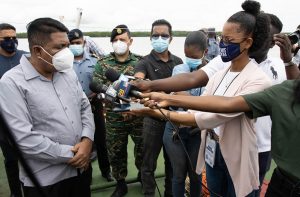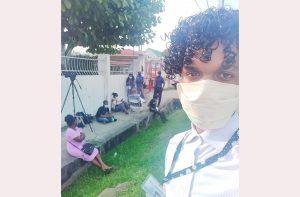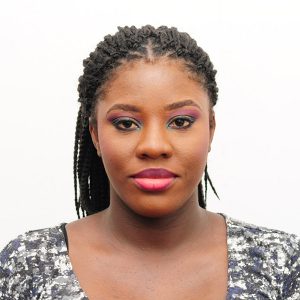-to keep nation informed
WHEN COVID-19 hit Guyana in March 2020, it abruptly threw everyone’s world into a frenzy with the impromptu changes. Among those most affected were those persons deemed “essential workers” who were required to still be out in public when others were required to be at home.
For many, when they think of essential workers, professions such as nurses, doctors and police officers come to mind. Not many have considered the sacrifices made and challenges being faced by media workers during the period.
As the situation unfolded, and many became confined to their homes, the work of journalists became all the more crucial as persons craved information and developments on the deadly virus. In Guyana the situation of course was compounded by the debacle of the March 2 General and Regional Elections, another area which demanded media workers to be on the frontline.
“We had to remain providing a duty to the nation, getting updates to the nation and putting our lives at risk. There was so much that we now know about the virus that we didn’t know, so persons really took a chance with being out there to provide coverage to this nation,” commented Nazima Ragubir, President of the Guyana Press Association.
Ragubir herself was on the frontline during coverage of the pandemic.

“It was challenging from the onset because there was so much uncertainty about what was going on with the elections cycle; there were other stories to be covered,” she noted.
Ragubir added: “A few of us have been affected by COVID-19 and if not us, we have relatives or friends. We have media workers who died and then there is that mental health aspect of it, dealing with that trauma that affected us, another aspect that a lot of times we don’t take into consideration, and that is a cause for concern.”
To date Guyana has recorded over 17,000 cases, and over 400 deaths from the virus which has been responsible for over 3.7 million deaths worldwide.
The horizon is looking brighter now as the country has been able to access vaccines. A robust vaccination campaign is ongoing throughout the country.
Ragubir during the interview with the Guyana Chronicle said the pandemic has affected the landscape of media life, in Guyana and across the world.

“It still remains challenging to this day. It is changing the dynamic of the newsroom. Now people are thinking: Can I work from home? Should offices look at how people cover assignments, how you engage with officials? We have less press engagement in person. While there is some virtual, there is still not enough so access has been very difficult to get,” she noted.
The veracity of the pandemic hit close to home for the media corps earlier this year, with the passing of two well-known media persons: Namila Henry, a communications specialist and former editor at the Guyana Chronicle who died in March, 2021 and veteran journalist, Mondale Smith, who died on May 31.
“People underestimate the dangers we put ourselves in to ensure that they stay informed with everything that is happening in Guyana and around the world,” commented Newsroom journalist, Shikema Dey.
“Journalists and everyone in the media fraternity should be applauded for their sacrifice of risking their lives to chase after a story. Think about what would have happened if the media was not considered ‘essential’. The public would be left in the dark about the ills of the world,” she said.
Dey tested positive for the virus in August, 2020.
“I didn’t present with the more serious symptoms. I had the headache and the loss of taste and I was pretty glad about that. When it came to treatment options, I merely had to get my vitamins, hydrate and keep active but that was a challenge because I was isolated at home,” she shared.
Meanwhile, 24-year-old Kemol King, now a Communications Officer at the Department of Public Information (DPI) was a journalist at the Kaieteur News when he was called in to be tested for COVID-19 in June after a member of Cabinet tested positive.
He would later test positive in August, and was under quarantine for 14 days. Though he was lucky to be among those who did not show physical symptoms, he noted that it was nonetheless mentally challenging.
“My biggest challenge was really the mental strain of staying in after being extremely active for the 5-6 months prior. I got panic attacks confining myself within four walls all day, at times. So, I got vaccinated as soon as I could, this year,” he noted.
King was among those media workers on the frontline of the elections coverage last year, where a lot of journalists were exposed to risks. King commented that while most journalists were being responsible while carrying out their duties during the pandemic, there were other persons among them who were not at all careful.
“I remember one situation in which a reporter/commentator was said to have visited the family of the first woman who had died from COVID-19. He was coming on assignments with other journalists, and you could tell that they [other journalists] were uneasy,” he noted.



.jpg)











